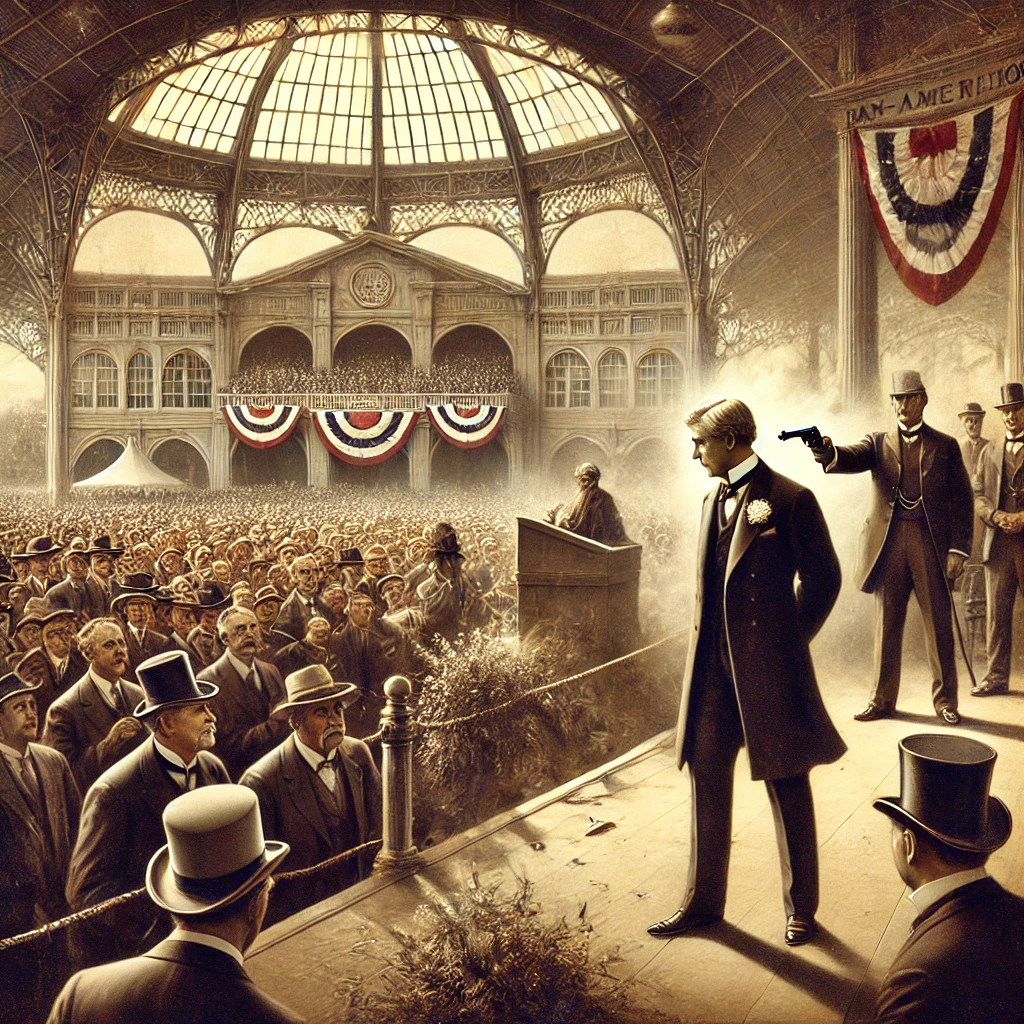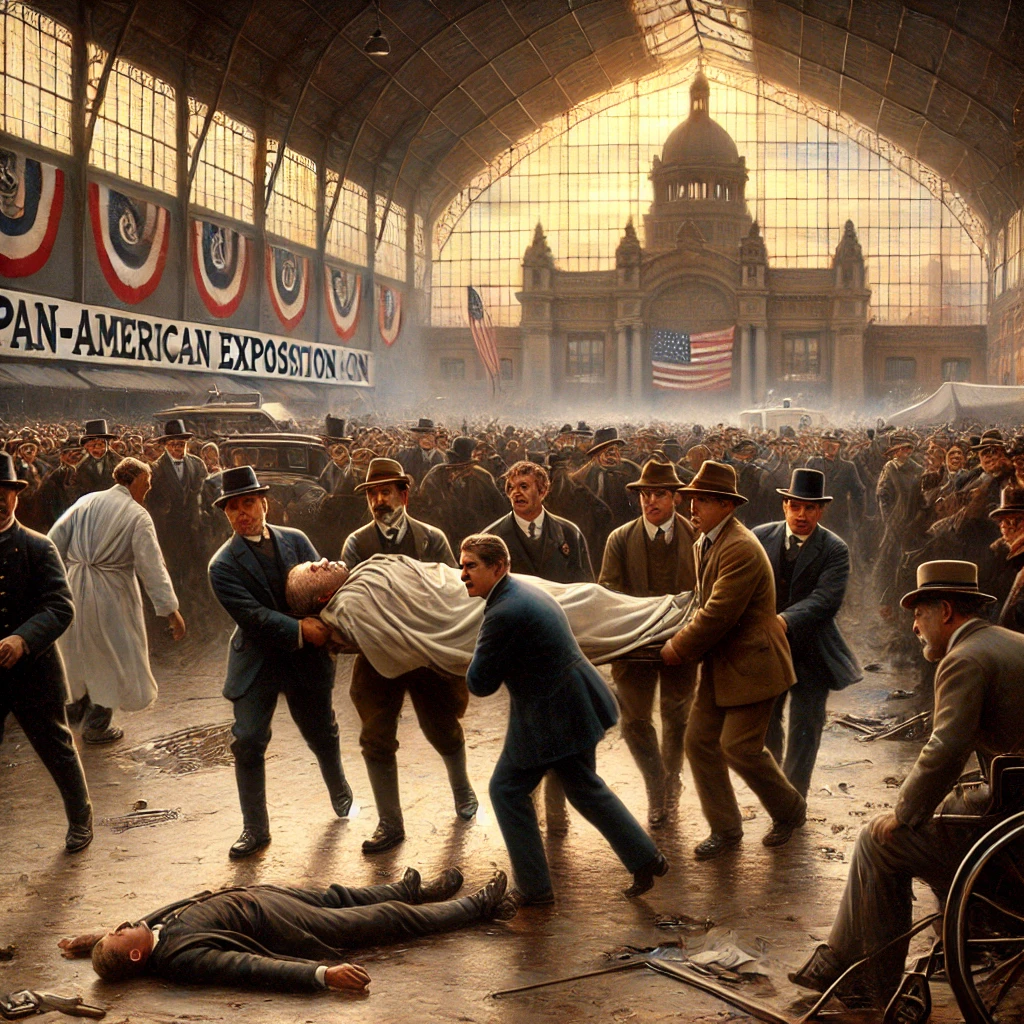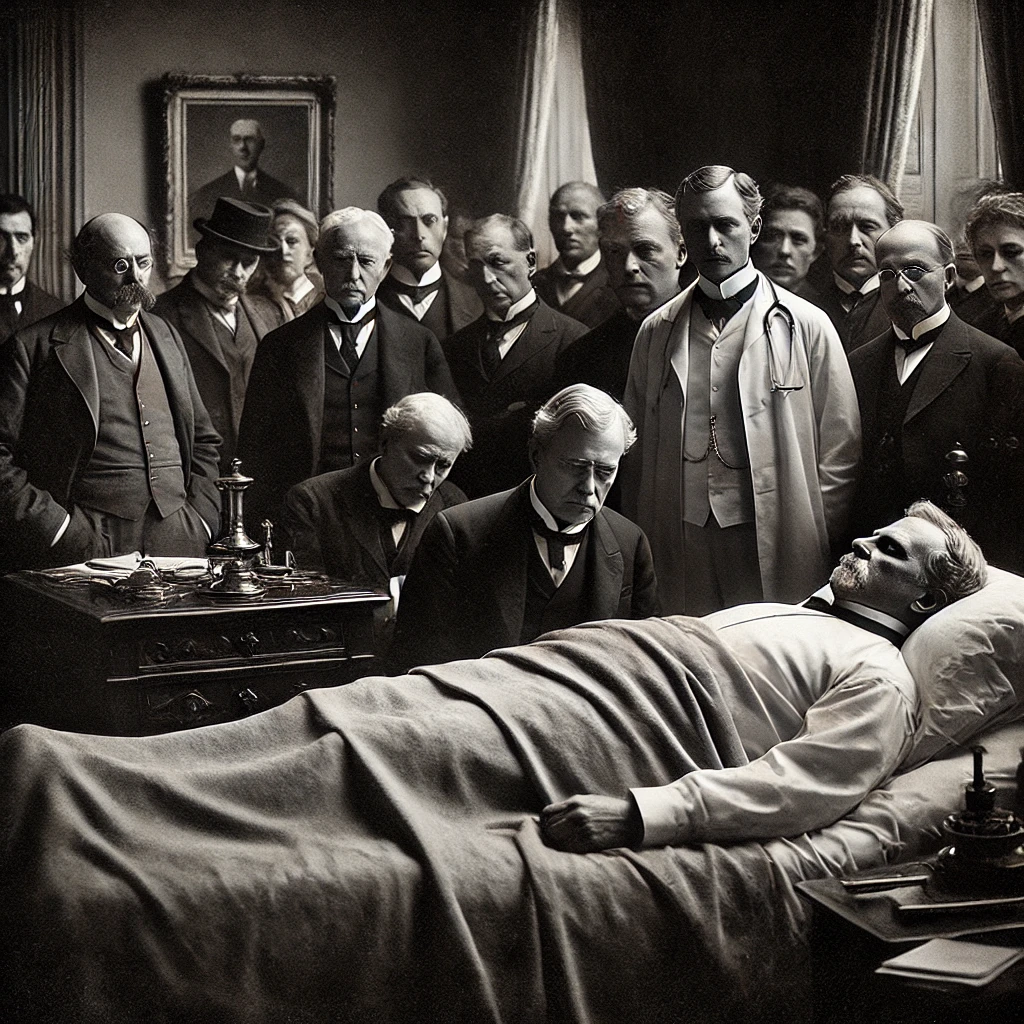On September 14, 1901, President William McKinley succumbed to wounds inflicted eight days earlier when he was shot twice in the abdomen while greeting the public at the Pan-American Exposition in Buffalo, New York. McKinley’s death marked a tragic turning point in American history and ushered in a new era of leadership under Vice President Theodore Roosevelt. This event not only shook the nation but also had lasting implications for the direction of U.S. domestic and foreign policy.
The Assassination Attempt
The assassination attempt on President McKinley occurred on September 6, 1901, at the Pan-American Exposition, an international fair held to celebrate the 100th anniversary of the opening of the Erie Canal. McKinley was greeting the public from a specially designed platform when he was approached by Leon Czolgosz, a self-proclaimed anarchist who had been motivated by anti-government sentiments. Czolgosz managed to shoot McKinley twice in the abdomen before being subdued and arrested by security.

McKinley was immediately rushed to the hospital, where doctors discovered that the bullets had caused significant damage to his internal organs. Despite initial optimism regarding his recovery, the president’s condition quickly deteriorated due to complications, including gangrene, which set in as a result of the bullet wounds. The medical care and treatments of the time were not sufficient to prevent the infection from spreading, ultimately leading to McKinley’s death.
The Immediate Aftermath
The death of President McKinley on September 14, 1901, sent shockwaves throughout the United States and the world. The nation mourned the loss of its leader, who had been in office since 1897 and was widely respected for his role in guiding the country through a period of significant economic growth and imperial expansion. McKinley’s death also highlighted the vulnerability of public figures and led to increased security measures for future presidents.
The assassination of McKinley brought Vice President Theodore Roosevelt to the presidency. Roosevelt, known for his dynamic personality and progressive policies, was a stark contrast to McKinley’s more reserved demeanor. Roosevelt’s ascension marked the beginning of a new chapter in American politics, characterized by vigorous reform and a more assertive foreign policy.

The Role of Theodore Roosevelt
The transition from McKinley to Roosevelt was marked by a period of significant change in American governance. Roosevelt, who had been an outspoken advocate for progressive reforms and had earned a reputation as a reformer, immediately began to implement his vision for a more active government. His presidency introduced a series of progressive reforms aimed at addressing social injustices, economic inequality, and corporate abuses.
Roosevelt’s approach to foreign policy also reflected his more assertive stance. He promoted an expansionist agenda, which included the construction of the Panama Canal and a more pronounced role for the United States on the global stage. Roosevelt’s leadership style and policies had a lasting impact on American politics, shaping the direction of the nation for years to come.
The Impact on American Politics
The assassination of McKinley and the subsequent rise of Theodore Roosevelt had profound implications for American politics. McKinley’s presidency had been characterized by a conservative approach to governance, focusing on economic stability and imperial expansion. In contrast, Roosevelt’s presidency embraced progressive reforms and an active role in international affairs.
Roosevelt’s presidency marked the beginning of the Progressive Era, a period of significant social and political reform aimed at addressing the challenges of industrialization and urbanization. His initiatives, including trust-busting, labor reforms, and conservation efforts, reshaped American society and governance, leaving a lasting legacy.

The Legacy of McKinley and Roosevelt
The legacy of President McKinley and his successor, Theodore Roosevelt, reflects the complexities of early 20th-century American politics. McKinley’s death underscored the precariousness of political leadership and the impact of violence on the course of history. Roosevelt’s presidency, on the other hand, demonstrated the potential for transformative change and the influence of strong leadership in shaping the nation’s trajectory.
McKinley’s assassination also led to increased attention on the protection of public figures and the need for improved security measures. The event prompted reforms in how presidents and other high-profile individuals were safeguarded, ensuring greater protection for future leaders.
Lasting Impact
The events of September 1901 had a profound impact on the United States, setting the stage for significant political and social changes. McKinley’s death and Roosevelt’s ascension marked a turning point in American history, reflecting the nation’s evolving political landscape and the challenges of the early 20th century.
The legacy of McKinley and Roosevelt continues to be studied and analyzed, highlighting the ways in which historical events can reshape the course of a nation. The transition from McKinley to Roosevelt exemplifies the dynamic nature of American politics and the enduring influence of leadership on the nation’s development.
